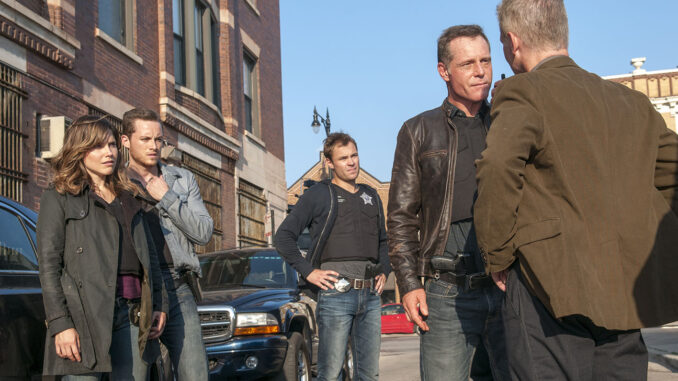
The hum of speculation, the whisper of a familiar name, the sudden spark of recognition in the collective memory of a devoted fanbase – these are the subtle signals that precede a significant return in the landscape of long-running television. When Jesse Lee Soffer, the actor who imbued Detective Jay Halstead with such conflicted integrity for ten seasons, spoke of returning to the set of Chicago P.D., it wasn't just a news item; it was a homecoming, a professional evolution, and a testament to the enduring bonds forged in the crucible of episodic drama.
Soffer’s departure as Halstead had left a palpable void on the screen, like a foundational stone subtly removed from a well-built wall. His character, the steady anchor, the moral compass often veering into shades of grey, was deeply ingrained in the fabric of District 21. For fans, his exit felt like a farewell to a long-time companion. Yet, the television series, much like the city it portrays, possesses a magnetic pull, a lifeblood that draws its people back. Soffer’s discussions about his return resonated deeply, not merely as a potential cameo, but as a deeper engagement – a return to direct. This shift transforms his re-entry from a simple revisit into a profound act of creative stewardship.
Imagine a seasoned captain returning to navigate his beloved ship, not from the bridge as before, but from the quiet confidence of the pilot's chair, guiding its course. This is the essence of Soffer's return as a director. Having lived within the intricate world of Chicago P.D. for a decade, embodying its struggles and triumphs, he possesses an intimate understanding of its rhythm, its gritty realism, and the subtle nuances of its characters. This isn't just an outsider stepping onto a new set; it's someone who knows every alleyway, every character's twitch, every unspoken history, now tasked with shaping the very narrative he once inhabited. The camera lens, once his audience, now becomes his paintbrush, allowing him to sculpt scenes with a perspective few directors could ever achieve – the perspective of a character who was there.
Moreover, his return speaks volumes about the intangible family forged on set. Ten years is an epoch in television time, enough to weave relationships tighter than blood. Soffer’s conversations about being back weren’t just about the mechanics of filmmaking; they brimmed with the warmth of recognition, the comfort of familiar faces. The crew, the cast – they are not just colleagues but confidantes, fellow travelers who have navigated long nights, script changes, and personal milestones together. To step back into that environment, not as a guest, but as a trusted leader, reinforces the notion that television production is less an industry and more a nomadic commune, whose members find solace and strength in their shared journey. It’s the comfortable ease of slipping on an old, beloved jacket, recognizing its familiar scent and the way it molds perfectly to your form.
Ultimately, Jesse Lee Soffer's discussions about his return to Chicago P.D. are more than just professional updates. They are illustrative of the cyclical nature of creative careers, the magnetic pull of meaningful work, and the evolution that happens when talent finds new avenues of expression within a cherished world. It's a testament to the idea that a story, and the people who tell it, can continue to evolve, offering new perspectives and deeper insights. His presence, whether in front of or behind the camera, reinforces the enduring power of a narrative that has become a second home, both for him and for the millions who tune in, anticipating the pulse of the city and the familiar cadence of its dedicated protectors. His return is not just a chapter re-opened; it is a new book, written with a hand that knows its characters intimately, but now holds the pen with a fresh, guiding vision.
